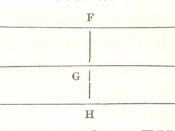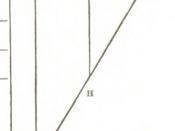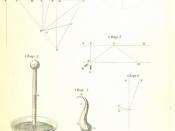Thomas Hobbes was born in 1588, and was the son of an English man who fathered three children with his wife. Thomas was reading and writing at age four, acquired functional knowledge of Latin and Greek at age six, and went off to study at Oxford at the age of fifteen (Ebenstein & Ebenstein, 1991). Hobbes studied at Oxford for five years, and it is said that he was nonchalant about the course of study which he thought was "arid and old-fashioned" (Ebenstein & Ebenstein, 1991: 398).
Prior to the political turmoil of the 1640s, the writings of Thomas Hobbes were anti-democratic and anti-parliamentary. His major work up to this time was the De Cive in 1642, but it was written in Latin. As it as been pointed out that the De Cive is similar in fundamental principles to his later great work, the Liviathan published in 1651 (Ramon M.
Lemos, 1978). The battle between the king and parliament would cause Hobbes to fear for his life, and in the 1640s he fled England to France. Despite his concerns regarding the rule of parliament in England, Hobbes returned home in 1651 because he feared the French clergy more than the English parliament. In England he declared that he would submit to the republican regime, and remained in his homeland until his death in 1679.
The Liviathan is widely considered to be "the first general theory of politics in the English language" (Grimke & Howells, 1998). The early philosophers posited that some men are naturally predisposed to rule, and are endowed with different attributes than the people over whom they rule. Hobbes argues from the opposite perspective, and proposes "that man is naturally equal in mind and body" (Ebenstien & Ebenstien, 1991).
Hobbes prefers a single ruler serving as executor, legislature,


